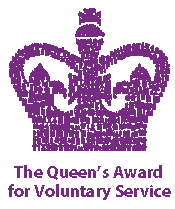Which season is best for this activity?
This activity is suitable for any season, taking place entirely indoors. No special clothing is required and costumes are provided.
Learning objectives and links to the national curriculum Programme of Study
The session links directly to the National Curriculum History Programmes of Study (changes within living memory and local history) for Key Satges 1 and 2. (https://bit.ly/3nmySgg) All our sessions are underpinned by detailed lesson plans. These plans are adjusted to take account of the variations in ability and skill level.
We provide an insight into the life of a Victorian servant, comparing it to life today. Pupils will be:
- Performing tasks, using original, historical tools
- Gaining an understanding of Britain’s past and the diversity of society
- Understanding the process of change by comparing tasks and facilities with those we use nowadays (including changes within living memory)
- Undertaking hands-on tasks, weighing evidence and guessing the purpose of various domestic artefacts.
By the end of the session we want the pupils to recognise the vast social class differential in the Victorian era, to understand the reasons for the mass migration from rural areas to the towns, and to experience life in service.
Outline of the Activity
The activity starts in the classroom, with a general introduction to life as a servant in Victorian times. We introduce “White Lodge” in Richmond Park, now home to the Royal Ballet School but formerly the residence of the Duke & Duchess of Teck, cousins to Queen Victoria. Local people were trained to work in service at White Lodge. The scenario is that staff are needed to help in the house; we ask the children what services they think would be required and promise them jobs in the Lodge if they succeed in the tasks set for them today.
The children will be dressed in costume and lined up by the Housekeeper to be read the very strict rules of the house e.g. annual salary, working hours, etc. The class will then divide into four groups to carry out the duties of Housemaid, Valet, Cook and Laundry Maid. The tasks are hands-on, and include carpet beating, laying the fire in the range and hanging wet washing on the clothes line.
At the end of the session the children return to the classroom and talk about the changes in social conditions and the difficulties of household tasks in the past. They will then be awarded Certificates of Merit.
During this session the children will come into contact with flour, pastry (vegan) and chickpeas. Any of these items can be substituted if there are any allergies.and gloves can be made available.
Ideas for pre-visit learning
- The dates of Queen Victoria’s reign and her relationship to our present Queen.
- The fact that there was no mass production and all utensils were hand-made.
- Electricity was in its infancy and therefore not used in domestic or social appliances.
- A brief explanation of the vast gulf between the working and landed classes.
Ideas for follow-up work back at school
- Using some of the implements in the session as a guide, compare with modern day equivalents.
- Have the children, in their role as domestic help, write a letter to their family in the country describing life in the ‘Big House’ and in the city.
- Make a chart of the hierarchy on a large country estate and house, starting with the” Lord of the Manor.”
The children were given a great taste of being a servant – the sessions were well organised and the time at each station was perfect.


